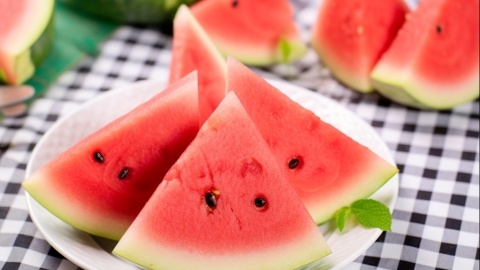Can patients with gastritis eat watermelon?
Generally speaking, patients with gastritis can eat watermelon, but they should do so in moderation. The detailed explanation is as follows:

Watermelon is rich in water content, which can help replenish the body's fluid needs and promote the secretion of digestive juices, thereby enhancing appetite to some extent. Moreover, watermelon contains various vitamins, including vitamin C, which may benefit the repair of gastric mucosa.
However, it should be noted that watermelon is a raw and cold food, and it contains a high amount of sugar and some citric acid. The gastric mucosa of patients with gastritis already has inflammation to varying degrees. Consuming excessive watermelon may irritate the gastric mucosa due to its cold nature, stimulate increased gastric acid secretion, and consequently worsen mucosal damage, causing discomfort symptoms such as stomach pain, bloating, acid reflux, and heartburn. Additionally, patients with gastritis often have weakened digestive function. Since watermelon has a high sugar content, excessive consumption may lead to indigestion and increase the burden on the gastrointestinal tract.
If patients with gastritis wish to eat watermelon, they may do so in small amounts during periods of stable condition. It is recommended to consume it between half an hour to one hour after a meal, avoiding consumption on an empty stomach. If the patient is experiencing an acute flare-up of gastritis with obvious symptoms such as stomach pain, bloating, nausea, and vomiting, it is advisable to avoid eating watermelon temporarily to prevent worsening of the condition.









